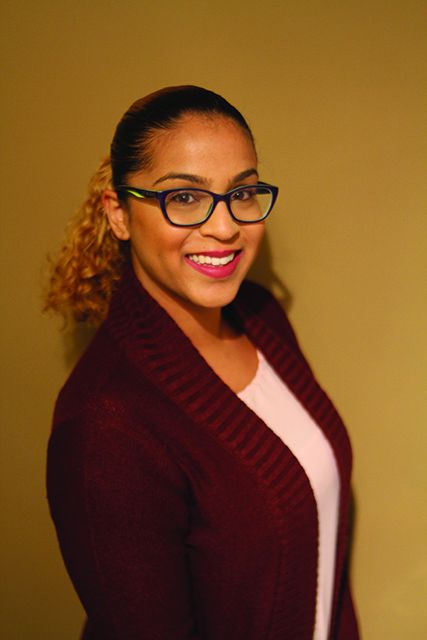Reglindis Rose Parker is in the process of obtaining a Doctorate degree in Family Nurse Practice at Southern Adventist University (SAU). She just started three months ago and we wanted to know more about her experience. Here’s what she had to say:
How long have you been studying?
I actually started SAU in 2011 after graduating from Bermuda Institute. I graduated with my Associates of Nursing in 2013, Bachelors of Nursing in 2015, Master of Science in Nursing (MSN) in 2018, and have just started the Doctorate of Nurse Practice in January 2019.
What was your educational journey before decided to do a PhD?
After I graduated with my Bachelors of Science in Nursing, I started working in Chattanooga, TN as a psychiatric nurse. I spent a year in this role working full time before starting the MSN program. In this program I studied to become a psychiatric mental health nurse practitioner (PMHNP). In this role I can assess, diagnose, and prescribe/treat patients with psychiatric disorders. During the MSN program, I continued to work as a psychiatric nurse until I graduated in 2018.
How did you know that this was for you?
I actually came home with the hope to work at MAWI as a PMHNP. Bermuda is making great strides to welcoming and accepting Nurse Practitioners (NPs), but I did not find a position that suited me. I was, however, welcomed as a registered nurse onto the Inpatient Detox Unit at Turning Point on MAWI for a few months. I had a great experience there, but I knew that if I did not practice as a PMHNP, I would not have the skills to bring the specialty to Bermuda in the future. Additionally, I was aware that the NPs currently working in Bermuda were more medical focused (vs psychiatric focused). I was invited into the DNP program in December and knew that this would give me the opportunity to practice in my specialty in the USA. I had considered doing my doctorate at a later date, but when the invitation was extended to me, I knew it was divine intervention.
What does your weekly schedule look like?
I currently work part time as a PMHNP in Georgia, USA and I physically attend classes on Tuesdays in Chattanooga, TN. It is an hour and a half drive (each direction). Great time for audiobooks.
What is the hardest part?
The hardest part in trying to balance life, school, and work. I try to maintain a healthy social life, but with testing and papers and forums to post on I am constantly trying catching up! So much more is required of me in this program.
What is the best part?
The best part is learning new information and treatments. Since I have worked mainly in psychiatry (I spent some time in the ER) a lot of the information is a great refresher for me and some of it is even brand new to me. On a psychiatric unit, we still have to manage the medical needs of our patients, but not always in as much detail as one would on a medical surgical floor or in an urgent care.
I also enjoy working on my dissertation. I haven’t started it yet, but I have to put a good bit of time into research for it. The program is very much research based so I will be carrying out my own research project. I am excited about that.
What are your plans after your PhD?
I really have a passion for psychiatry, so I really hope to continue to work as a PMHNP and use the knowledge from my FNP certification to better assist my psychiatric patients with an approach that is more wholistic. Most of my patients have medical issues that are under- or untreated. I hope to return to Bermuda at some point and work as a PMHNP. I am ready licensed as an RN and advanced practice registered nurse (APRN) in Bermuda, so hopefully the transition will be easy. APRN is a more general term for all NPs.
What would you say to those thinking about embarking on the same journey?
I say go for it! Get it done! It is a lot of hard work and a lot of life balance, but in the end, it is so worth it.
This article was originally published in the 2019 edition of the Rg Scholarship Directory.

